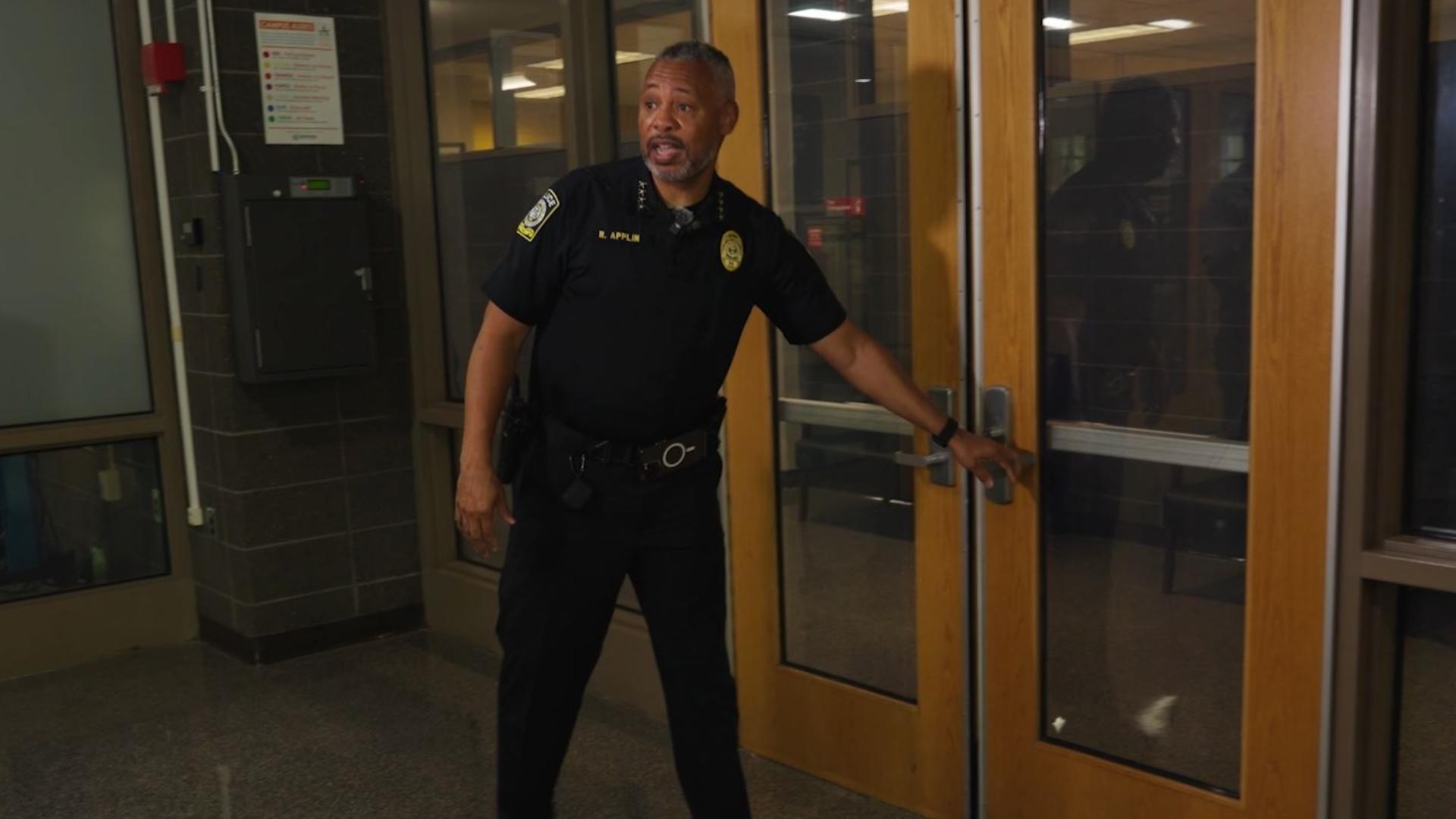ATLANTA — For metro Atlanta students and parents and teachers, a new school year can feel like a fresh start.
"Brand new classroom, brand new things you want to buy for the wall," said veteran Dekalb County teacher Veena Black. "Thinking about the kids you're going to get and lessons you want to plan."
But in an era when lockdown drills and safety planning have become a routine part of school life, the return of the academic year can also bring concerns.
So what's being done to keep metro Atlanta kids safe?
The Data
The Georgia Department of Education tracks school-level safety data across the state as part of its "Unsafe School Choice Option" program.
According to the state agency, metro Atlanta public school districts in 2023 saw a combined 136 incidents of terroristic threats and 356 situations involving felony weapons.
For purposes of this article, metro Atlanta public school districts are defined as the following:
- Atlanta Public Schools
- Clayton County
- Cobb County
- Dekalb County
- Fulton County
- Gwinnett County
To be clear: for most of the hundreds of thousands of metro Atlanta students, most days never involve these kinds of safety incidents.
And when they do happen, most are stopped before a threat is carried out or someone is injured.
But not always.
Safety Preparations
In February, shortly after the school dismissed for the day, somebody shot and injured four students in the parking lot outside Benjamin E. Mays High School in southwest Atlanta. A 14-year-old student was later charged with four counts of aggravated assault, according to Atlanta Public Schools (APS).
When asked what's being done to prevent future shootings like that, APS Police Chief Ronald Applin pointed to a multi-tiered strategy.
"We have so many different layers in place," he said. "The idea of the layers is to give kids and parents and teachers options to choose from, options to help catch any potential problems."
On many APS campuses, those layers are visible as soon as you walk into the school. Over the summer, construction crews installed new entryways featuring a double set of locking doors and "bullet-resistant" glass.
A district spokesman said the enhanced-security entryways were completed at dozens of APS campuses before students returned to school August 1. More are scheduled to be finished by Christmas break.
They're part of a slew of APS protocols designed to secure the district's campuses. Other components include a team of more than 100 school law enforcement personnel, campus visitor background check systems, and an anonymous threat reporting platform.
"Safety is about everything that we do," said Chief Applin.
An extensive list of the district's current protocols, provided by a spokesman, can be found below:
State Assistance
The Georgia Emergency Management and Homeland Security Agency (GEMA) might be primarily known for its role responding to natural disasters. But it's far from the agency's only responsibility.
"School safety is our mission for homeland security," said GEMA director Chris Stallings.
The agency works with school districts across the state to help them prepare for potential security incidents ranging from active shooters to bomb threats.
According to a GEMA spokesperson, in 2023 the agency "taught 219 training courses to a total of 8,065" school staff across Georgia. They also conducted 40 "STAR" audits -- reviews of local campus safety preparations and vulnerabilities.
"It's important for me that my children, your children, all the children in the state of Georgia are safe," said Stallings.
In the Classroom
Veena Black and Kaitlyn Newnham have spent years teaching in metro Atlanta classrooms and their enthusiasm for teaching students hasn't wavered.
"They get so excited when they come into the classroom and they're ready to learn," said Black. "Their excitement is what gets me excited."
When asked how concerns about campus safety impact them, Newnham said teachers have always had to look out for their students.
"It's just now there's more protocols and practice and 'worst case scenario' because the worst has happened," said Newnham. "Now you've got to be prepared for anything. It just becomes routine."
Part of that routine means balancing their dual roles of educator and protector.
"I think our school system really tries hard to, whatever comes our way, to problem solve, to try to find ways to keep our students safe and even our faculty safe," added Black.

